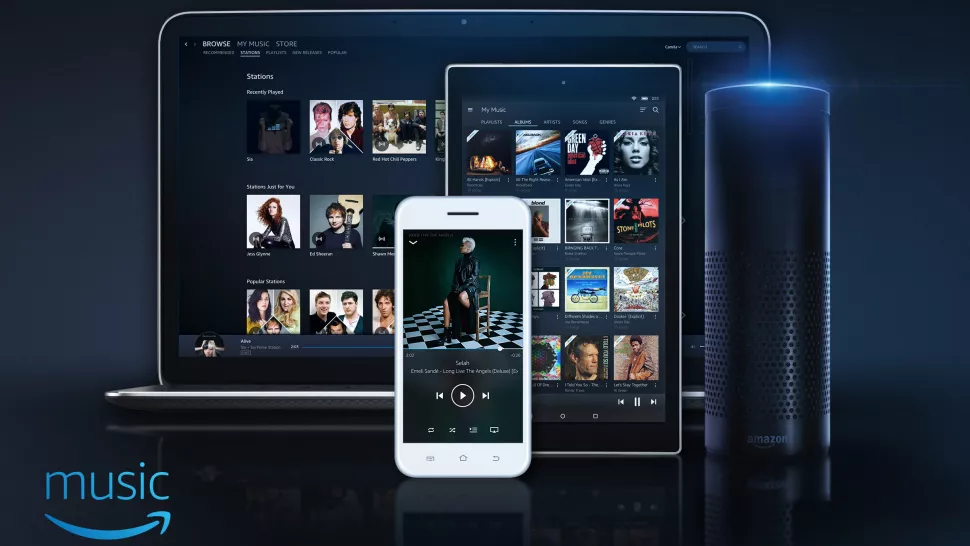Is Spotify Premium a good investment? According to a recent Kantar Research report, apparently not. The agency cited a Q1 loss of 1 million subscribers in the United Kingdom, many of whom were younger listeners looking to save money as inflation hit 9% in the UK and the cost of living continued to rise.
While the drop in Spotify's numbers could be temporary or due to the monthly subscriber churn levels that services experience on a regular basis, the news reminds us that Spotify isn't exactly competing at a high level against other major streamers like Apple Music, Amazon Music Unlimited, and Tidal. It also follows a squabble involving the service's most popular podcast host, Joe Rogan. Perhaps it is time to reconsider Spotify.

Where is Spotify HiFi?
Aside from churn and controversy, Spotify's biggest issue right now is sound quality. The company announced in February 2021 that it would be adding Spotify Hi-Fi, an upgrade that would bring lossless CD-quality audio to its $9.99/month Premium subscription tier. However, as of February 2022, Spotify Hi-Fi had not yet arrived, and we are still waiting four months later.
What Spotify does offer its Premium subscribers are bit-rate-limited streams that use lossy compression – data from the original audio is removed to reduce track file size. While throttling bit rates from the 1,441kbps required for CD-quality to Spotify's current 320kbps made sense in the days of Napster and iTunes, today's home and mobile internet bandwidth easily accommodates higher-quality streams, so there's really no excuse.
Reality check: If you listen primarily through the speakers on your laptop computer or a pair of cheap earbuds at the gym, Spotify's 320kbps MP3-level streams will suffice. When listening with high-performance headphones or separate speakers, lossless audio with CD-quality or higher resolution makes a significant difference.
And what about Spatial Audio?

Spotify, in addition to only providing lossy audio, does not have a library of music mixed in Dolby Atmos (aka, Spatial Audio). Spatial Audio is a compelling feature that can really enhance certain tracks for headphones listening on competing services such as Apple Music, Amazon Music Unlimited, and Tidal (and in some instances on surround sound speaker systems). Unlike Spotify HiFi, the company has made no mention of adding Spatial Audio in the past, indicating that it is clearly not on their radar.
As an alternative to Spotify, here are three better-sounding music services to consider:
Amazon Music Unlimited
Amazon Music Unlimited, which costs $8.99 per month, gives you access to 90 million HD (lossless CD-quality) and over 7 million Ultra HD (lossless high-resolution up to 24-bit/192kHz resolution) tracks, as well as thousands of songs mixed in Dolby Atmos and 360 Reality Audio. While Amazon provides both desktop and mobile apps, Amazon Music HD is also built into a wide range of streaming-capable speakers and A/V electronics.
Apple Music
Apple Music offers lossless CD-quality and up to 24-bit/192kHz high-res audio streaming for the same $9.99 per month as Spotify Premium. Apple has also led the way in Spatial Audio, making it a priority to add new and old albums and tracks mixed in Dolby Atmos on a weekly basis and presenting them in a well-organized, easy-to-find format on the Apple Music desktop and mobile apps. While Apple Music does not integrate with most third-party streaming-capable speakers and A/V electronics (as Spotify does with Spotify Connect), the company's AirPlay wireless protocol for casting audio and video from computers and mobile devices is widely supported.
Tidal
Tidal HiFi ($9.99 per month) has been around longer than Amazon and Apple in the lossless streaming game. It began with a CD-quality offering in 2015, and in 2017 added a high-resolution audio offering on its Tidal HiFi Plus ($19.99 per month) tier that uses MQA (Master Quality Authenticated) technology. The disadvantage of MQA is that you must use either the company's desktop app or an external DAC with MQA support to listen to high-resolution audio. However, Tidal is compatible with a wide range of streaming speakers and A/V electronics, and Tidal HiFi Plus includes Dolby Atmos and 360 Reality Audio tracks in its library.


You must be logged in to post a comment.